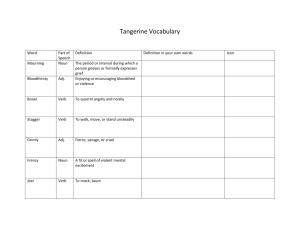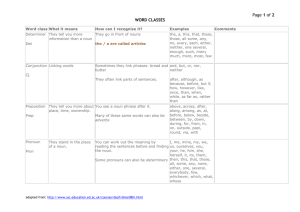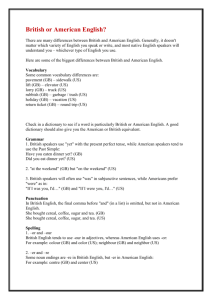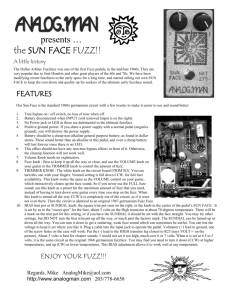File
advertisement
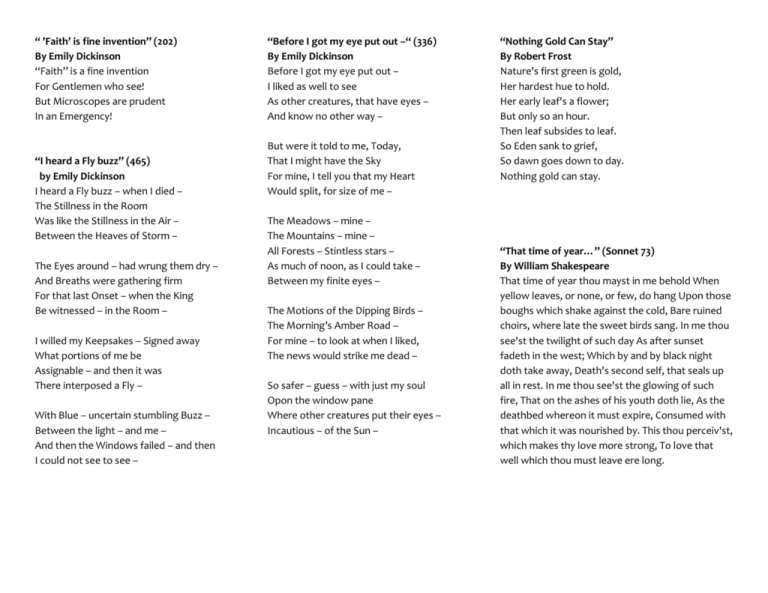
“ ’Faith’ is fine invention” (202) By Emily Dickinson “Faith” is a fine invention For Gentlemen who see! But Microscopes are prudent In an Emergency! “I heard a Fly buzz” (465) by Emily Dickinson I heard a Fly buzz – when I died – The Stillness in the Room Was like the Stillness in the Air – Between the Heaves of Storm – The Eyes around – had wrung them dry – And Breaths were gathering firm For that last Onset – when the King Be witnessed – in the Room – I willed my Keepsakes – Signed away What portions of me be Assignable – and then it was There interposed a Fly – With Blue – uncertain stumbling Buzz – Between the light – and me – And then the Windows failed – and then I could not see to see – “Before I got my eye put out –“ (336) By Emily Dickinson Before I got my eye put out – I liked as well to see As other creatures, that have eyes – And know no other way – But were it told to me, Today, That I might have the Sky For mine, I tell you that my Heart Would split, for size of me – The Meadows – mine – The Mountains – mine – All Forests – Stintless stars – As much of noon, as I could take – Between my finite eyes – The Motions of the Dipping Birds – The Morning’s Amber Road – For mine – to look at when I liked, The news would strike me dead – So safer – guess – with just my soul Opon the window pane Where other creatures put their eyes – Incautious – of the Sun – “Nothing Gold Can Stay” By Robert Frost Nature's first green is gold, Her hardest hue to hold. Her early leaf's a flower; But only so an hour. Then leaf subsides to leaf. So Eden sank to grief, So dawn goes down to day. Nothing gold can stay. “That time of year…” (Sonnet 73) By William Shakespeare That time of year thou mayst in me behold When yellow leaves, or none, or few, do hang Upon those boughs which shake against the cold, Bare ruined choirs, where late the sweet birds sang. In me thou see'st the twilight of such day As after sunset fadeth in the west; Which by and by black night doth take away, Death's second self, that seals up all in rest. In me thou see'st the glowing of such fire, That on the ashes of his youth doth lie, As the deathbed whereon it must expire, Consumed with that which it was nourished by. This thou perceiv'st, which makes thy love more strong, To love that well which thou must leave ere long. “Did I miss Anything?” By Tom Wayman Nothing. When we realized you weren’t here we sat with our hands folded on our desks in silence, for the full two hours Everything. I gave an exam worth 40 percent of the grade for this term and assigned some reading due today on which I’m about to hand out a quiz worth 50 percent Nothing. None of the content of this course has value or meaning Take as many days off as you like: any activities we undertake as a class I assure you will not matter either to you or me and are without purpose Everything. A few minutes after we began last time a shaft of light suddenly descended and an angel or other heavenly being appeared and revealed to us what each woman or man must do to attain divine wisdom in this life and the hereafter This is the last time the class will meet before we disperse to bring the good news to all people on earth. Nothing. When you are not present how could something significant occur? Everything. Contained in this classroom is a microcosm of human experience assembled for you to query and examine and ponder This is not the only place such an opportunity has been gathered but it was one place And you weren’t here “The Grammar Lesson” Steve Kowit A noun's a thing. A verb's the thing it does. An adjective is what describes the noun. In "The can of beets is filled with purple fuzz" of and with are prepositions. The's an article, a can's a noun, a noun's a thing. A verb's the thing it does. A can can roll - or not. What isn't was or might be, might meaning not yet known. "Our can of beets is filled with purple fuzz" is present tense. While words like our and us are pronouns - i.e. it is moldy, they are icky brown. A noun's a thing; a verb's the thing it does. Is is a helping verb. It helps because filled isn't a full verb. Can's what our owns in "Our can of beets is filled with purple fuzz." See? There's almost nothing to it. Just memorize these rules...or write them down! A noun's a thing, a verb's the thing it does. The can of beets is filled with purple fuzz.


